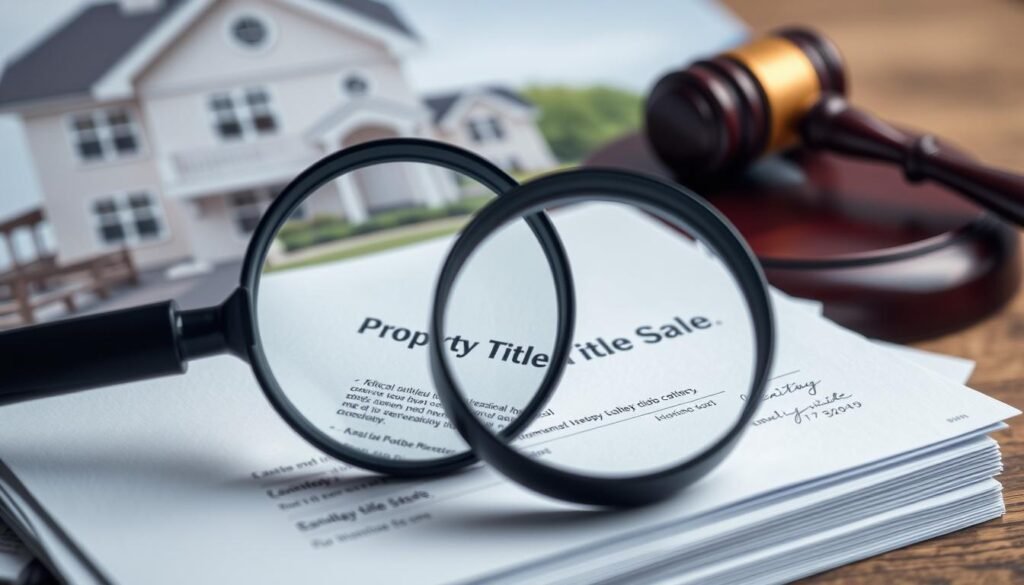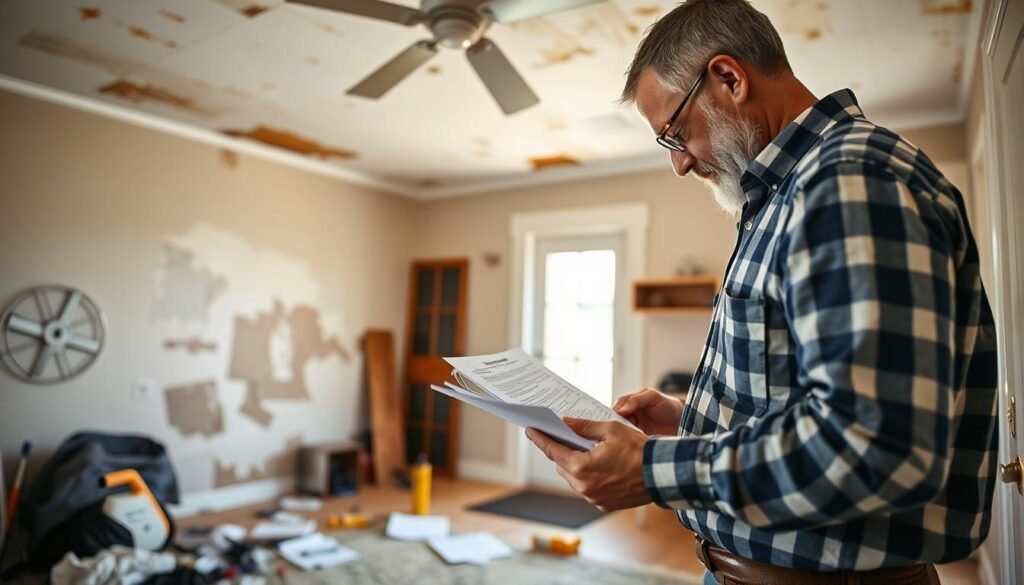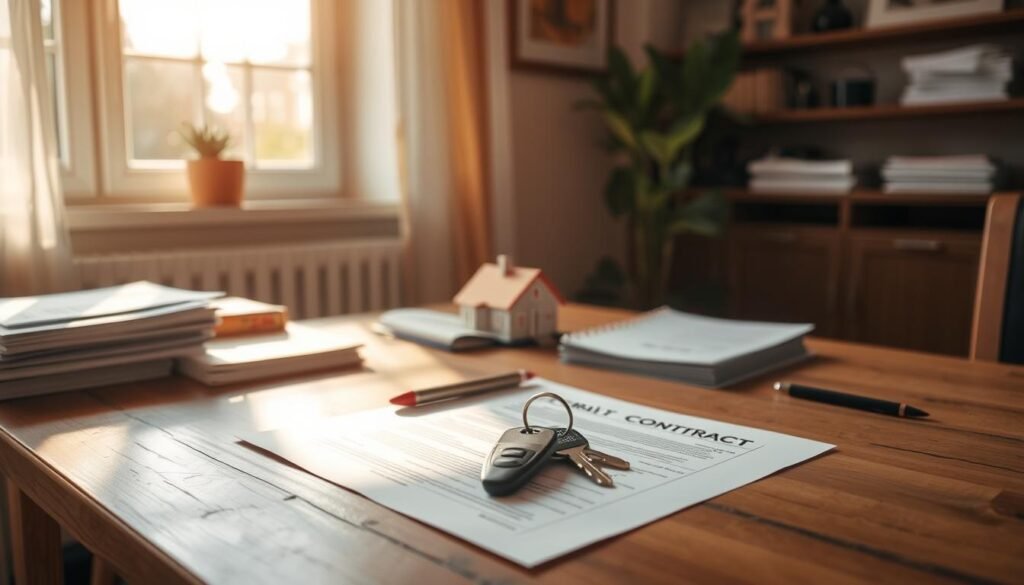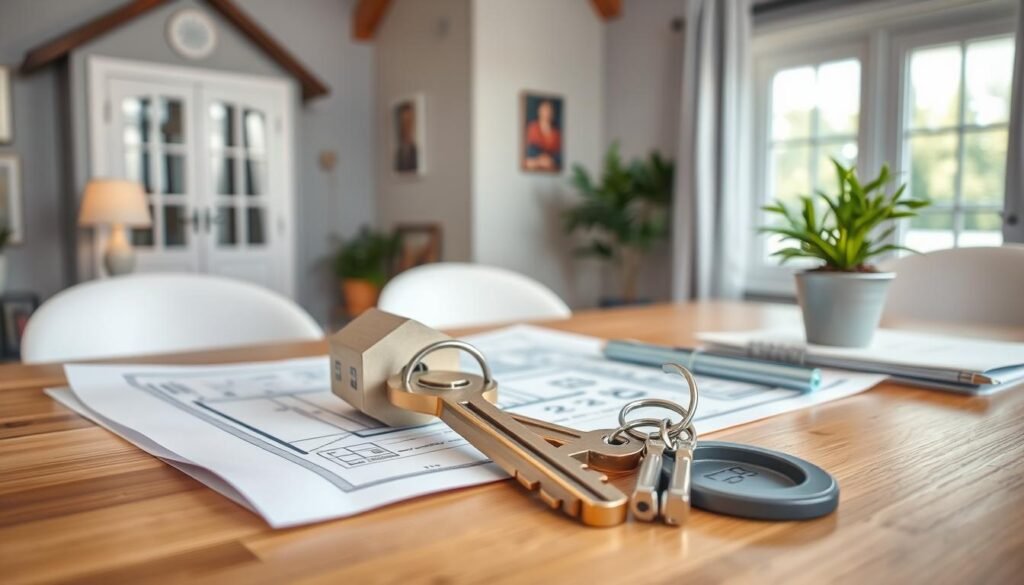This post may contain affiliate links, which means I may earn a commission if you purchase through these links at no extra cost to you
At my first closing, I did not no what to expect. I thought it was going to take forever and a day to get through. Closing is the final step where you officially become a homeowner. For first-timers, closing needs careful planning. This includes getting your mortgage preapproval and collecting all needed documents.
The homebuying journey can seem scary. But knowing each step can make it feel doable. Picture how great you’ll feel when everything is set, and in about 30 to 45 days, you’re moving in. On closing day, which only lasts 1 to 2 hours, you’ll be all set for a smooth change.
Understanding your Closing Disclosure, Seller’s Disclosure, and Title Documents is key. Also, having your loan application materials ready is important. By knowing about these important papers and what you need, you can speed up the closing.
Table of Contents
ToggleUnderstanding the House Closing Process
Closing on a house is the highlight of buying a home. It involves many steps, like submitting documents, inspecting the home, and finishing paperwork. Handling these tasks well makes the closing process go smoothly and efficiently.
Usually, closing a house takes 30 to 45 days. It’s important to be organized and proactive. Start by quickly turning in all needed documents and choosing good homeowner’s insurance. Opening an escrow account keeps funds safe during the sale. A title search makes sure the property’s ownership is clear, with title insurance for extra safety.
You should do home and pest inspections before closing. Home inspections find any big problems needing fixes, while pest inspections check for wood-damaging pests, sometimes required by the state. Talking about repairs and closing costs can save money.
Deals often have conditions about inspections and fixes. So, it’s key to settle on a closing date, have all important papers ready, and be prepared financially. A final walk-through checks the property’s condition. Putting down earnest money shows you’re serious about buying. The last big step is making sure all paperwork is correct.
To avoid delays and protect your interests, compare closing dates, talk about closing costs, and maintain open communication with your lender. Following these steps carefully aids in a smooth house closing.
Key Documents to Prepare for Closing
As the closing day draws near, it’s vital to have all your documents ready. Being prepared means you avoid any surprises. You should have these key documents organized:
Closing Disclosure
The Closing Disclosure is key for understanding your loan. It breaks down your payments, loan terms, and costs. You’ll get it at least three days before closing as the Consumer Financial Protection Bureau states. This makes sure there are no sudden shocks at signing time.
Seller’s Disclosure
The Seller’s Disclosure tells you about the property’s condition. It’s crucial for knowing what issues the property has before you buy it. Make sure to look over this document carefully to protect yourself from future problems.
Title Documents

Title documents confirm the property’s legal status. They include the deed and affidavit of title, highlighting ownership and liens. Title insurance, for those who choose it, offers extra protection for lender and buyer.
Loan Application
Your Loan Application shows you’re approved and outlines your loan’s terms. Everything needs to be in order, as it demonstrates you’re serious about the loan. The Consumer Financial Protection Bureau outlines steps like creating a loan packet and opening an escrow account.
Having your documents in order is crucial for a hassle-free closing. Go through your checklist and review everything carefully. This avoids any issues at the last minute.
| Document | Description |
|---|---|
| Closing Disclosure | Details about loan terms, monthly payments, and closing costs. Must be received at least three days before closing. |
| Seller’s Disclosure | Information about known property defects. Important for understanding the property’s condition. |
| Title Documents | Includes deed, affidavit of title, and title insurance. Validates property ownership transfer. |
| Loan Application | Collection of documents proving loan approval and terms. Key for closing the deal with the lender. |
Steps to Take Before Closing Day
The period before your closing day is packed with vital tasks. These ensure everything goes smoothly. Pre-closing preparation is key to dodge any surprises. We’ll explore the necessary steps for your important day.
Schedule a Home Inspection
A home inspection is incredibly important. It reveals hidden problems, be they structural or electrical. Knowing the home inspection importance can help in negotiations. Or confirm the home is in top shape.

Purchase Homeowners Insurance
Lenders usually require you to get homeowners insurance. This insurance covers potential damages to your property.
Meet with Your Lender
A lender meeting helps clear any doubts about your appraisal and finances. It’s a chance to address last-minute questions. And ensure all financial conditions are met.
Prepare Your Loan Application Documents
Collecting and double-checking your loan documentation is essential. Make sure all financial records, insurance info, and other documents are in order. Proper loan documentation prep avoids closing day delays.
Financial Preparations for the Closing Process for First-Time Homebuyers
Understanding Closing Costs
Prepping for your first home’s closing means understanding your financial tasks. Closing costs include various charges such as loan origination, appraisal, and title insurance fees. These expenses vary but are usually 2% to 5% of the home’s price. Knowing these costs helps you plan your budget and decide on items to negotiate.
Gathering Cash to Close
Gathering cash for closing goes beyond just the down payment. It covers closing costs and prepaids like homeowners insurance and property taxes. Mortgage options from places like SoFi Home Loan, with low down payments, help first-time buyers manage these costs.
Earnest Money
Earnest money is a deposit showing you’re serious about buying the property. It’s typically 1% to 3% of the buying price and goes towards your closing costs or down payment. This deposit shows the seller you’re committed to the purchase.
Lender Credits and Seller Concessions
Lender credits and seller concessions offer financial help. Lender credits reduce some immediate costs for a slightly higher mortgage rate. Seller concessions may cover several or all closing costs, easing your financial burden and assisting in making the property purchase more achievable.
Proper financial preparation makes the closing process smoother. Handling your financial obligations for closing reduces stress and prepares you for owning a home.



